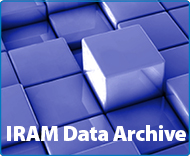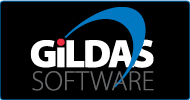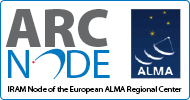Program
Sunday, October 2, 2011
14:00 Departure from Grenoble
15:00 – 16:00 Check-in / coffee
Tutorial
16:00 – 16:10 Welcome (Karl Schuster, IRAM)
16:10 – 17:00 Theory and development of SIS-mixers, Doris Maier (IRAM, France)
17:10 – 18:00 Principle and applications of Kinetic Inductance Detectors, Christian Hoffmann (Institut Néel, France)
19:00 – 20:00 Dinner
Monday, October 3, 2011
8:00 – 9:00 Breakfast
8:50 – 9:00 Opening (Karl Schuster, IRAM)
Session 1: Superconducting microresonators
9:00 – 9:20 Superfluid velocity measurements with a superconducting micro-resonator, Julien Salort (Institut Néel, France)
9:20 – 9:40 Design and analysis of superconducting microwave coupling circuits for kinetic inductance detectors, Pascal Febvre (Chambery, France)
9:40 – 10:00 Development of Kinetic Inductance Stationary-Wave Integrated Fourier-Transform Spectrometry (SWIFTS), Nicolas Boudou (Institut Néel, France)
10:00 – 10:30 Coffee Break
Session 2: Josephson junctions
10:30 – 10:50 Superconducting artificial atom with two internal degrees of freedom, Olivier Buisson (Institut Néel, France)
10:50 – 11:10 Superconductivity induced by current injection into non-superconducting Bi2Sr2CaCu2O8, Yilmaz Simsek (Universität Erlangen, Germany)
11:10 – 11:30 Intrinsic Josephson effect in Bi2Sr2CaCu2O8+d after doping by current injection, Sebastian Probst (Universität Erlangen, Germany)
11:30 – 11:50 Thermal and quantum escape of fractional Josephson vortices, Tobias Gaber (Universität Tübingen, Germany)
11:50 – 14:00 Lunch Break
Session 3: Superconductors for mm-wave imaging
14:00 – 14:20 Body scanning for security: impact of cryogenic detectors at the example of a sub-mm video camera, Torsten May (IPHT Jena, Germany)
14:20 – 14:40 Optimization of LEKIDs for NIKA: a dual band kinetic inductance detectorcamera for the IRAM 30m telescope, Markus Rösch (IRAM, France)
14:40 – 15:00 Readout electronics for NIKA, Olivier Bourrion (LPSC, France)
15:00 – 15:30 Coffee Break
Session 4: Superconducting optical detectors
15:30 – 15:50 Superconducting nanowire single-photon detectors: challenges in optimization of detector performance, Julia Toussaint (IPHT Jena, Germany)
15:50 – 16:10 Simultaneous readout of a multi-pixel superconducting single photon detector array, Olaf Wetzstein (IPHT Jena, Germany)
16:10 – 16:30 Full characterization of NbN nanoscale Single/Multi-photon Detectors with the Effective photon POVM model, Jelmer Renema (Universiteit Leiden, the Netherlands)
16:30 – 16:50 Realization and characterization of a SWIFTS micro-spectrometer integrated on a 1D-NbN SNSPD array, Jean-Claude Villegier (CEA Grenoble, France)
16:50 – 18:30 Poster Session
19:00 – 20:00 Dinner
20:00 Scientific committee meeting
Tuesday, October 4, 2011
8:00 – 9:00 Breakfast
Session 1: SIS mixers and large scale projects
9:00 – 9:40 ALMA interferometer and Band 7 cartridge, Sylvain Mahieu (IRAM, France)
9:40 – 10:00 Multibeam SIS receiver development, Anne-Laure Fontana (IRAM, France)
10:00 – 10:30 Coffee Break
Session 2: Voltage standards and SQUID applications
10:30 – 10:50 SNS junctions for programmable Josephson voltage standards, Thomas Scheller (TU Braunschweig, Germany)
10:50 – 11:10 dc-SQUID – SQIF sensor with high transfer function based on sub-micrometer cross-type Josephson tunnel junctions, Thomas Schoenau (IPHT Jena, Germany)
11:10 – 11:30 High- and low-Tc SQUIDs with submicron Josephson junctions for the investigation of small spin systems, Joachim Nagel (Universität Tübingen, Germany)
11:30 – 12:00 Micro-SQUID microscopy for the study of superconductors, Klaus Hasselbach (Institut Néel, Grenoble, France)
12:00 – 12:10 Closing
12:10 – 14:00 Lunch Break
14:00 Departure to Grenoble
15:30 – 17:00 Visit of IRAM
Wednesday, October 5, 2011
10:00 – 11:30 Visit of the European Synchrotron Radiation Facility (ESRF)
(Meeting point: Grenoble main train station at 9:00 am)



